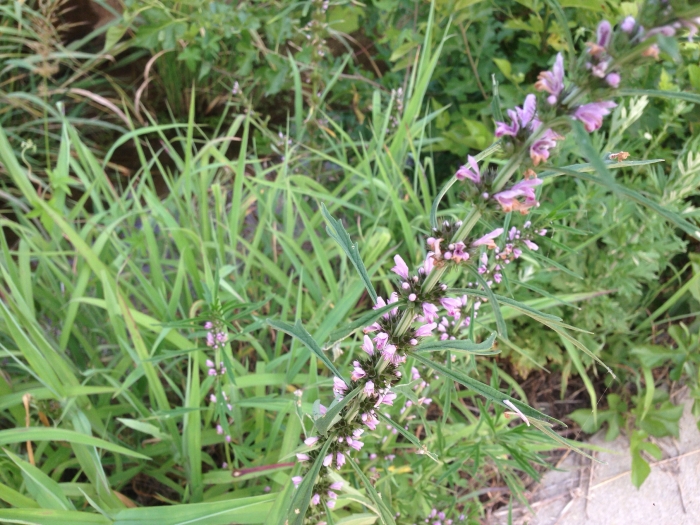Chinese Motherwort
(Leonurus japonicus)
Chinese Motherwort (Leonurus japonicus)
/
/

Kim, Hyun-tae
CC BY 4.0
Image By:
Kim, Hyun-tae
Recorded By:
Copyright:
CC BY 4.0
Copyright Notice:
Photo by: Kim, Hyun-tae | License Type: CC BY 4.0 | License URL: http://creativecommons.org/licenses/by/4.0/ | Rights Holder: Kim, Hyun-tae | Publisher: iNaturalist | Date Created: 2016-08-20T09:18:33Z |
























Estimated Native Range
Summary
Leonurus japonicus, commonly known as Chinese motherwort, is a herbaceous perennial plant native to grasslands, roadsides, and riverbanks in Asia, including China, Korea, and Japan. It can grow up to 47 inches tall and has an upright, branching form. The leaves are palmately lobed, giving them a hand-like appearance. From summer to early fall, it produces small sessile flowers arranged in whorls along the stem, with white to reddish-purple corollas that are modest in showiness. The plant is valued for its medicinal properties, particularly in traditional Chinese medicine.
Chinese motherwort is often used in herbal gardens and for naturalistic plantings. It is known for its ease of maintenance and ability to thrive in a variety of soil conditions, though it prefers well-drained soils with consistent moisture. It can tolerate both full sun and partial shade. In cultivation, it is important to control its spread as it can self-seed prolifically, potentially becoming invasive outside its native range. Gardeners should be aware of its invasive potential and check local regulations before planting.CC BY-SA 4.0
Chinese motherwort is often used in herbal gardens and for naturalistic plantings. It is known for its ease of maintenance and ability to thrive in a variety of soil conditions, though it prefers well-drained soils with consistent moisture. It can tolerate both full sun and partial shade. In cultivation, it is important to control its spread as it can self-seed prolifically, potentially becoming invasive outside its native range. Gardeners should be aware of its invasive potential and check local regulations before planting.CC BY-SA 4.0
Plant Description
- Plant Type: Herb
- Height: 1.5-6 feet
- Width: 1-2 feet
- Growth Rate: Moderate
- Flower Color: White, Pink
- Flowering Season: Summer
- Leaf Retention: Semi-deciduous
Growth Requirements
- Sun: Full Sun, Part Shade
- Water: Medium
- Drainage: Medium
Common Uses
Bee Garden, Butterfly Garden, Deer Resistant, Low Maintenance
Natural Habitat
Native to grasslands, roadsides, and riverbanks in Asia
Other Names
Common Names: Asian motherwort, Honeyweed, Chá-De-Frade, Cordão-De-São-Francisco, Erva-Das-Lavadeiras, Erva-De-Macaé, Oriental motherwort, Erva-Dos-Santos-Filho
Scientific Names: , Leonurus japonicus, Leonurus altissimus, Leonurus altissimus, Leonurus artemisia, Leonurus artemisia var. albiflorus, Leonurus cuneifolius, Leonurus heterophyllus, Leonurus heterophyllus f. leucanthus, Leonurus intermedius
GBIF Accepted Name: